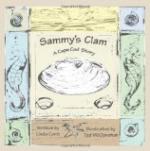He was fairly boiling over with gloat, but from between the bubbles I managed to find out that the new boarder was a big banker from New York, name of Van Wedderburn, with a barrel of cash and a hogshead of dyspepsy. He was a Wall Street “bear,” and a steady diet of lamb with mint sass had fetched him to where the doctors said ’twas lay off for two months or be laid out for keeps.
“And I’ve fixed it that he’s to stop at your house, Barzilla,” crows Jonadab. “And when he sees Mabel—well, you know what she’s done to the other men folks,” he says.
“Humph!” says I, “maybe he’s got dyspepsy of the heart along with the other kind. She might disagree with him. What makes you so cock sartin?”
“’Cause he’s a widower,” he says. “Them’s the softest kind.”
“Well, you ought to know,” I told him. “You’re one yourself. But, from what I’ve heard, soft things are scarce in Wall Street. Bet you seventy-five cents to a quarter it don’t work.”
He wouldn’t take me, having scruples against betting—except when he had the answer in his pocket. But he went away cackling joyful, and that night Van Wedderburn arrived.
Van was a substantial-looking old relic, built on the lines of the Boston State House, broad in the beam and with a shiny dome on top. But he could qualify for the nervous dyspepsy class all right, judging by his language to the depot-wagon driver. When he got through making remarks because one of his trunks had been forgot, that driver’s quotation, according to Peter T., had “dropped to thirty cents, with a second assessment called.” I jedged the meals at our table would be as agreeable as a dog-fight.
However, ’twas up to me, and I towed him in and made him acquainted with Mabel. She wa’n’t enthusiastic—having heard some of the driver sermon, I cal’late—until I mentioned his name. Then she gave a little gasp like. When Van had gone up to his rooms, puffing like a donkey-engyne and growling ’cause there wa’n’t no elevators, she took me by the arm and says she:
“What did you say his name was, Mr. Wingate?”
“Van Wedderburn,” says I. “The New York millionaire one.”
“Not of Van Wedderburn & Hamilton, the bankers?” she asks, eager.
“That’s him,” says I. “Why? Do you know him? Did his ma used to do washing at your house?”
She laughed, but her face was all lit up and her eyes fairly shone. I could have—but there! never mind.
“Oh, no,” she says, “I don’t know him, but I know of him—everybody does.”
Well, everybody did, that’s a fact, and the way Marm Bounderby and Maizie was togged out at the supper-table was a sin and a shame. And the way they poured gush over that bald-headed broker was enough to make him slip out of his chair. Talk about “fishers of men”! them Bounderbys was a whole seiner’s crew in themselves.
But what surprised me was Mabel Seabury. She was dressed up, too; not in the Bounderbys’ style—collar-bones and diamonds—but in plain white with lace fuzz. If she wa’n’t peaches and cream, then all you need is lettuce to make me a lobster salad.




